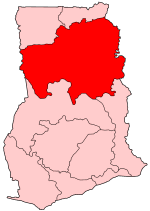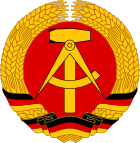
A parliamentary system is a system of democratic governance of a state where the executive derives its democratic legitimacy from its ability to command the confidence of the legislature, typically a parliament, and is also held accountable to that parliament. In a parliamentary system, the head of state is usually a person distinct from the head of government. This is in contrast to a presidential system, where the head of state often is also the head of government and, most importantly, the executive does not derive its democratic legitimacy from the legislature.

Elections in Ukraine are held to choose the President, Verkhovna Rada, and local governments. Referendums may be held on special occasions. Ukraine has a multi-party system, with numerous parties in which often not a single party has a chance of gaining power alone, and parties must work with each other to form coalition governments.

The Zimbabwe government consists of an elected head of state, the president, and a legislature. The presidential term lasts for 5 years, and is elected by majority, with a second round if no candidate receives a majority in the first round. The Parliament is bicameral, consisting of the House of Assembly and Senate. Following the 2013 constitution, the House of Assembly has 270 members. 210 are elected for five-year terms by single-member constituencies. Furthermore, the constitution specifies that for the two first parliaments, there are 60 additional seats reserved for women, 6 seats per province, which are filled based on the votes for in the single-member constituencies, using party-list proportional representation, distributed using the largest remainder method and the hare quota. The Senate has 80 members: 60 are elected for five-year terms in 6-member constituencies representing one of the 10 provinces, elected based on the votes in the lower house election, using party-list proportional representation, distributed using the hare quota. Additionally the senate consists of 2 seats for each non-metropolitan district of Zimbabwe elected by each provincial assembly of chiefs using SNTV, 1 seat each for the president and deputy president of the National Council of Chiefs and 1 male and 1 female seat for people with disabilities elected on separate ballots using FPTP by an electoral college designated by the National Disability Board.

Elections in Cyprus gives information on election and election results in Cyprus.

Elections in North Korea are held every four-to-five years for the Supreme People's Assembly (SPA), the country's national legislature, and every four years for Local People's Assemblies.
Vanni Electoral District is one of the 22 multi-member electoral districts of Sri Lanka created by the 1978 Constitution of Sri Lanka. The district covers the administrative districts of Mannar, Mullaitivu and Vavuniya in the Northern province. The district currently elects 6 of the 225 members of the Sri Lankan Parliament and had 253,058 registered electors in 2014.
Nuwara Eliya electoral district is one of the 22 multi-member electoral districts of Sri Lanka created by the 1978 Constitution of Sri Lanka. The district is conterminous with the administrative district of Nuwara Eliya in the Central province. The district currently elects 7 of the 225 members of the Sri Lankan Parliament and had 457,137 registered electors in 2010.

In Yugoslavia, elections were held while it had existed as the Kingdom of Yugoslavia, the first one being in 1918 for the Provisional Popular Legislature of Serbs, Croats and Slovenes and the last being the parliamentary election of 1938. Women were not eligible to vote. After the 1918 indirect ones, the 1920 parliamentary election was the first direct one. Parliamentary elections were held in 1923, 1925 and 1927, while with the new constitution a de facto Lower and Upper House were introduced in 1931. The 1931 elections were not free, as they were handled under a single-course dictatorship, while the 1935 and 1938 were held under limited basic democratic principles.

Legislative elections were held in the German Democratic Republic on 8 June 1986. 500 deputies to the Volkskammer were elected, with all of them being candidates of the single-list National Front. 703 Front candidates were put forward, with 500 being elected and 203 becoming substitute deputies. At its first session on 16 June, the Volkskammer re-elected Willi Stoph as Chairman of the Council of Ministers, while Erich Honecker, General Secretary of the ruling Socialist Unity Party, was also re-elected Chairman of the Council of State.

Legislative elections were held in the German Democratic Republic on 14 June 1981. 500 deputies to the Volkskammer were elected, with all of them being candidates of the single-list National Front. 679 Front candidates were put forward, with 500 being elected and 179 becoming substitute deputies. At its first session on 25 June, the Volkskammer re-elected Willi Stoph as Chairman of the Council of Ministers, while Erich Honecker, General Secretary of the ruling Socialist Unity Party, was also re-elected Chairman of the Council of State.

Legislative elections were held in the German Democratic Republic on 17 October 1976. 434 deputies to the Volkskammer were elected, with all of them being candidates of the single-list National Front. 591 Front candidates were put forward, with 434 being elected and 157 becoming substitute deputies. At its first session on 29 October, the Volkskammer elected Willi Stoph as Chairman of the Council of Ministers, while Erich Honecker, General Secretary of the ruling Socialist Unity Party, was elected Chairman of the Council of State. The allocation of seats remained unchanged from previous elections.

Legislative elections were held in the German Democratic Republic on 14 November 1971. 434 deputies to the Volkskammer were elected, with all of them being candidates of the single-list National Front. 584 Front candidates were put forward, with 434 being elected. The allocation of seats remained unchanged from previous elections.

Legislative elections were held in the German Democratic Republic on 20 October 1963. They were to originally be held in November 1962 but were postponed. 434 deputies to the Volkskammer were elected, with all of them being candidates of the single-list National Front, dominated by the Communist Socialist Unity Party of Germany.

Parliamentary elections were held in the German Democratic Republic on 19 October 1950. They were the first held since the founding of the country on 7 October 1949. There were 466 deputies to the Volkskammer in total.

Savelugu is one of the constituencies represented in the Parliament of Ghana. It elects one Member of Parliament (MP) by the first past the post system of election. It is located in the Northern Region of Ghana.The current member of Parliament for the constituency is Hajia Mary Salifu Boforo. He was elected on the ticket of the National Democratic Congress (NDC) and won a majority of 6,434 votes more than candidate closest in the race, to win the constituency election to become the MP. She had earlier represented the constituency in the 4th Republican parliament.

Legislative elections took place on 10 and 17 June 2012 to select the members of the 14th National Assembly of the French Fifth Republic – a little over a month after the French presidential election run-off held on 6 May.

The 1918 East Cavan by-election was a parliamentary by-election held for the United Kingdom House of Commons constituency of East Cavan on 20 June 1918. The election was caused by the death of the sitting member, Samuel Young of the Irish Parliamentary Party.
Mohamed Abdullah Mohamed Maharoof is a Sri Lankan politician and Member of Parliament.
William Neal de Alwis was a Ceylonese politician and a senior member of the Lanka Sama Samaja Party.














